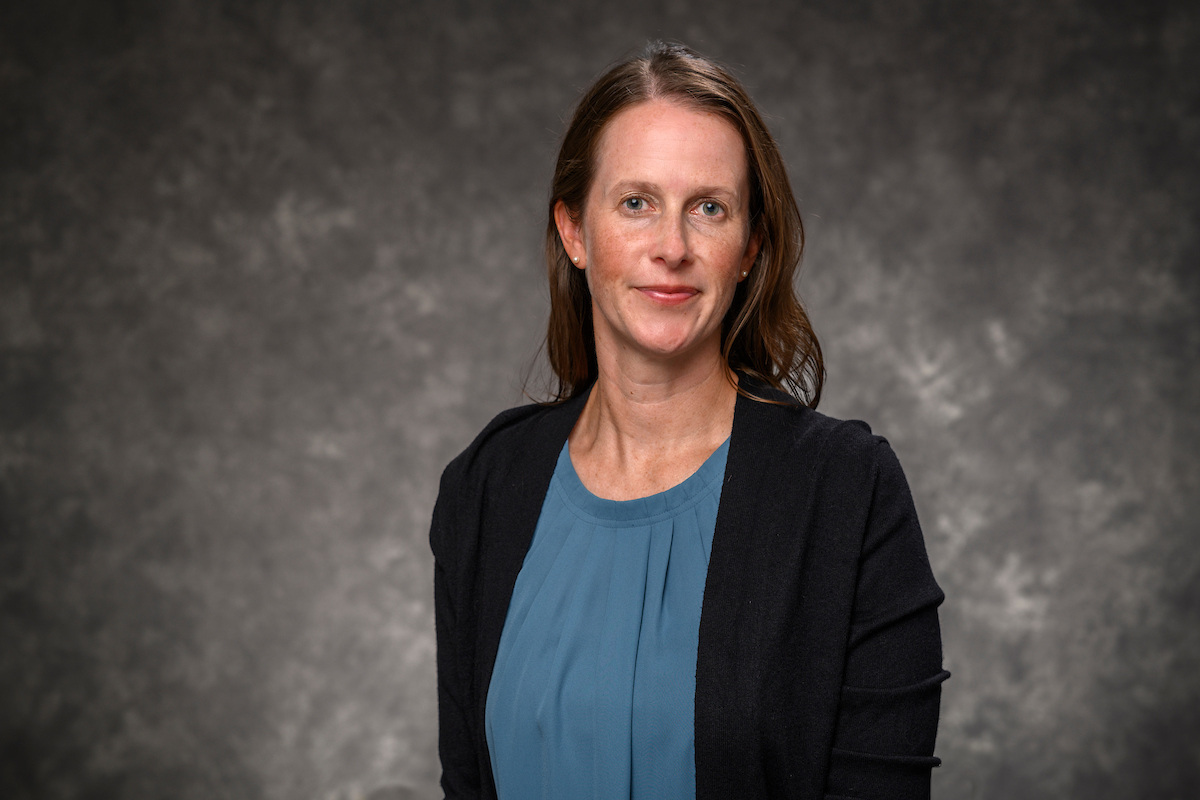Remucal Named Aquatic Sciences Center Director

Christy Remucal, Director of the Aquatic Sciences Center and professor of civil and environmental engineering (Photo by Althea Dotzour / UW–Madison)
Having been raised in New Mexico, Christy Remucal has developed a real thirst for water.
“Growing up in the desert gave me a deep appreciation for water,” says Remucal, professor of civil and environmental engineering.
That appreciation for water resources and passion for uncovering the mysteries of water contamination, followed her through her academic studies and has led her to not only become a world-class water treatment sleuth, but a campus leader in water research and education.
On April 6, Remucal was named Director of the Aquatic Sciences Center, headquartered in the Office of the Vice Chancellor for Research. Most recently, Remucal had been the interim director of the ASC. She also leads the Aquatic Chemistry group at the UW–Madison and is the Director of the Water Science and Engineering Laboratory.
“Christy is a consummate collaborator and researcher who is guided by a goal to help solve one of society’s most complex and important environmental and health problems – water contamination,” says Dorota Brzezinska, vice chancellor for research. “This goal resonates especially in a state like Wisconsin that is rich in water, both groundwater and surface water. Efforts in the ASC impact the water Wisconsinites drink every day and have broader implications for drinking water everywhere.”
ASC administers two major multidisciplinary research programs – the Sea Grant Institute and Water Resources Institute. Both support research, education and outreach to ensure sustainable use of Wisconsin’s water resources and are supported by the National Oceanic and Atmospheric Administration and U.S. Geological Survey. ASC is also the administrative home of Water@UW, an umbrella organization of over 170 water researchers and scholars at UW–Madison.
The mission of ASC is directly related to the newly announced UW–Madison’s RISE-EARTH initiative, specifically reimagining economic and environmental systems centering around water sustainability.
“One of the things that got me really excited about coming to UW–Madison is that interdisciplinary research and collaboration are highly valued on this campus. For the kind of work that I do, working on environmental systems that are complex and messy, you have to be able to work across disciplines,” Remucal says.
Remucal came to UW–Madison as an assistant professor in 2012. She holds a master’s degree and a doctoral degree in civil & environmental engineering from the University of California–Berkeley, and a bachelor’s of science degree in environmental engineering science from Massachusetts Institute of Technology.
Before joining the UW–Madison faculty, Remucal completed a postdoc in the Institute for Biogeochemistry and Pollutant Dynamics at the Swiss Federal Institute of Technology.
Her current work includes research on per- and poly-fluoroalkyl substances, known as PFAS, which are manufactured chemicals that have been used in everything from fire-suppressing foam to non-stick pans to food packaging. Unlike contaminants like PCBs, which tend to be found more in sediment, PFAS dissolve easily in water and move about more freely. There are more than 9,000 different PFAS compounds.
Some PFAS chemicals do not have any known natural degradation processes in the environment, hence the moniker “forever chemicals.” In recent years, PFAS have been detected in water bodies throughout Wisconsin, prompting statewide water testing and calls for regulation. Exposure to high concentrations of PFAS have been shown to be human health risks including higher incidence of cancer.
According to the U.S. Centers for Disease Control Agency for Toxic Substances, PFAS have been found in the blood of 99 percent of Americans and are present in water in cities across the United States. However, much remains unknown about how they move through the environment and the health risks associated with exposure.
Remucal places a special focus on groundwater, which is the source of most drinking water in Wisconsin, as well as inputs to the Great Lakes.
In her lab, Remucal advises several graduate students, undergraduate students and a postdoc. In addition to her research on PFAS, her team studies ways to remove chemicals like pharmaceuticals and pesticides from water using sunlight and manganese oxides. They also apply high-resolution mass spectrometry to investigate the reactivity of dissolved organic matter, which is important for biogeochemical cycling and for disinfection byproduct formation.
Remucal says some of her students go into a professional academic route. Others go on to work for industry or state agencies.
“What motivates a lot of my students is that they want to take their fundamental knowledge and work on problems that they really care about,” Remucal says. “That’s what drives me, also. We are doing basic science that makes an impact by conducting actionable research. It’s the Wisconsin Idea and at the heart of what we do.”
As a researcher, Remucal says that she has first-hand benefited from ASC support.
“I’ve been funded by its programs, and they helped me get started and grow my own research portfolio,” she says. “Now, it’s exciting to think about empowering other researchers and helping them develop their own research.”
Remucal loves being outside hiking, running, skiing, biking and is a year-round bike commuter.
And it doesn’t hurt that as a water researcher her office is located on the shores of one of the most studied lakes in the world – Lake Mendota.
“UW–Madison is a great place to do water research,” Remucal says. “I see my new role as an opportunity to give back to the water research community and to have an impact in Wisconsin and beyond. I want to explore ways to increase the visibility of our center and our footprint at UW–Madison. I’m hoping to unite water resources on campus around the center. And we are starting at a really great place.”
By Natasha Kassulke, natasha.kassulke@wisc.edu
